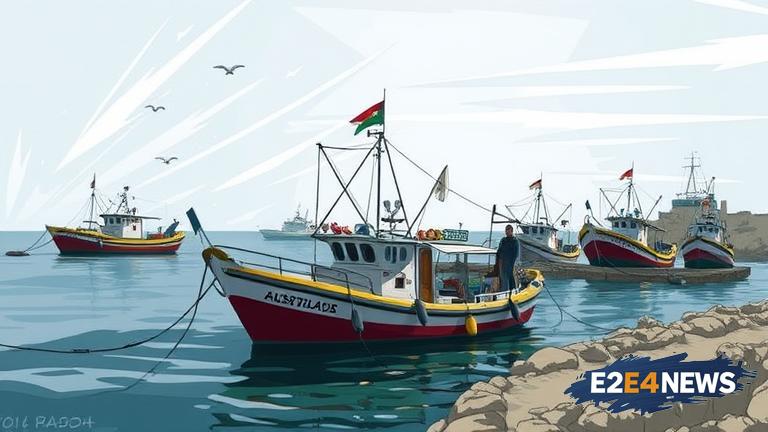The Gaza Strip, a coastal region in the Middle East, has been facing a severe humanitarian crisis for years. One of the main industries that have been affected is the fishing sector. Gazan fishermen have been struggling to make a living due to Israel’s ban on fishing, which has been in place for over a decade. The ban, which was imposed in 2007, restricts fishermen from accessing the sea beyond a certain distance from the shore. This has resulted in a significant decline in the catch, making it difficult for fishermen to support their families. The fishing industry is a vital source of income for many Gazans, with thousands of people depending on it for their livelihood. However, the ban has forced many fishermen to abandon their boats and seek alternative sources of income. The situation has been further exacerbated by the lack of access to basic necessities such as food, water, and medicine. The Gazan economy has been severely impacted, with high levels of unemployment and poverty. The fishing ban has also had a significant impact on the environment, with many fishermen resorting to using illegal fishing methods to try and increase their catch. This has resulted in the depletion of fish stocks and damage to the marine ecosystem. The international community has been calling for an end to the ban, citing the humanitarian crisis in Gaza. However, Israel has refused to lift the ban, citing security concerns. The situation in Gaza is a complex one, with many factors contributing to the humanitarian crisis. The fishing ban is just one of the many issues that need to be addressed in order to improve the lives of Gazans. The Gazan government has been trying to find alternative solutions to support the fishing industry, including providing financial assistance to fishermen. However, these efforts have been limited due to the lack of resources and funding. The international community needs to take a more proactive role in addressing the humanitarian crisis in Gaza, including the fishing ban. This can be done by providing financial assistance, as well as putting pressure on Israel to lift the ban. The situation in Gaza is a stark reminder of the impact of conflict on civilians, particularly in terms of access to basic necessities such as food and water. The fishing ban is a clear example of how a seemingly minor issue can have a significant impact on an entire community. It is essential that the international community takes a more comprehensive approach to addressing the humanitarian crisis in Gaza, including the fishing ban. This can be done by working with all parties involved to find a solution that takes into account the security concerns of Israel, as well as the humanitarian needs of the Gazan people. The fishing industry in Gaza has the potential to be a significant contributor to the economy, but it needs to be supported and protected. This can be done by providing training and resources to fishermen, as well as working to restore the marine ecosystem. The situation in Gaza is a complex one, but it is not impossible to find a solution. With the right support and resources, the fishing industry in Gaza can be revived, and the humanitarian crisis can be alleviated. The international community needs to take a more proactive role in addressing the crisis, including the fishing ban. This can be done by providing financial assistance, as well as putting pressure on Israel to lift the ban. The Gazan people deserve to have access to basic necessities such as food and water, and it is the responsibility of the international community to ensure that this happens. The fishing ban is a clear example of how a seemingly minor issue can have a significant impact on an entire community. It is essential that the international community takes a more comprehensive approach to addressing the humanitarian crisis in Gaza, including the fishing ban.
